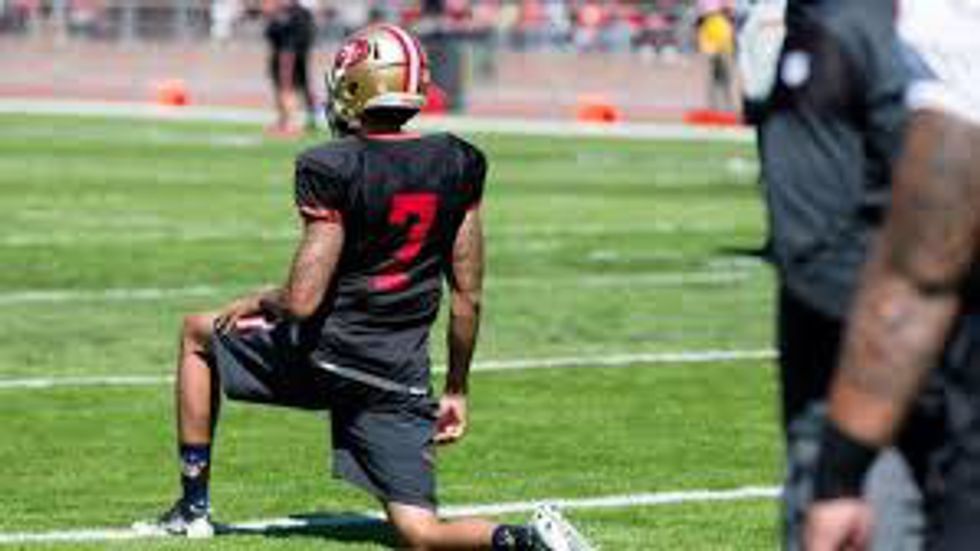Good news, football fans: the start of the regular NFL season is finally upon us. As we pick in to crowded stadiums, hotdog in hand, repping our home team’s colors, we expect to see excitement fill the stadium from the opening kickoff to the final seconds winding down on the clock. Though for the past few weeks, the thrilling moments of the game we all know and love has been occurring before the first whistle. Colin Kaepernick, fighting for the starting quarterback position on the San Francisco 49ers, has been fighting a different type of battle.
During the national anthem, Kaepernick purposely immersed himself into a silent protest. While his teammates, coaches, opposing team and tens of thousands of fans stand to honor America when the "Star-Spangled Banner," Kaepernick refused. He claims that his refusal to stand for the national anthem and support “a country that oppresses black people and people of color.” Supporting the Black Lives Movement, Kaepernick seeks to mete out justice for minorities. For him, this issue is “bigger than football.” While many black athletes have spoken out about political issues, Colin Kaepernick’s protest is the first of its kind in the new NFL season. The following game, the quarterback protested the anthem once again while being accompanied by a teammate, Eric Reid. Though this time, instead of taking a seat on the pine, decided to kneel to pay more respect to those who serve our country.
But does Colin Kaepernick have the right to protest the national anthem? Many of us have been taught to stand, face the flag and pay our respects to our country. Though we all oblige to it, is it required? The correct answer is no. Protected in the Bill of Rights, more specifically the first amendment, America safeguards ones freedom of speech, religion, and protest. Though this amendment is what the United States stands for, Colin Kaepernick struck a First Amendment nerve due to the fact that act was in a sense legal. Though it is not a forced law to obey, it is more of an expected standard. Stated in 36 US Code 301, “all other persons present should face the flag and stand at attention with their right hand over the heart, and men not in uniform, if applicable, should remove their headdress with their right hand and hold it at the left shoulder, the hand being over the heart.” This code is more of an expectation rather than a requirement.
Colin Kaepernick’s ability to express his first amendment rights frustrates many, including myself. Kaepernick is protesting against the country that gave his Bill of Rights freedoms and using them against the United States. He is disrespecting his country, the flag, and the song that stands for the struggle and ability to overcome adversity to allow us to evolved into the great country that we are today. The flag and the national anthem do not represent white America, black America, or those being oppressed. It simply stands for the collective, united body of patriots that have fought, and died of all races to protect the basic freedoms that Kaepernick is misusing. We stand for the flag and sing the "Star-Spangled Banner" as a reminder to honor those who have sacrificed themselves to protect the democracy that we stand for and better the lives of all within the United States for generations to come. Though Kaepernick was not legally wrong for protesting the flag and national anthem, he definitely was morally incorrect.

























